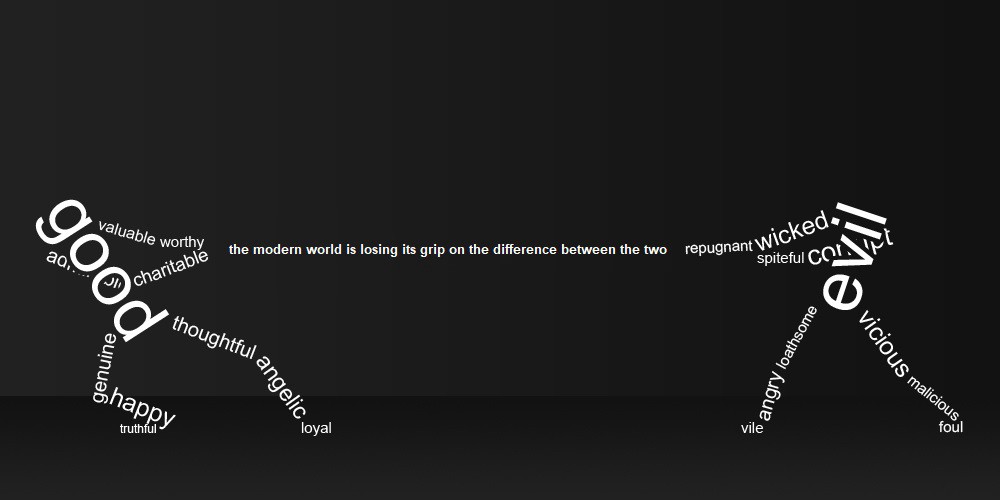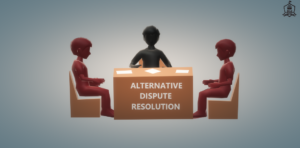The jurisprudence school is divided into two schools; these are the Positive School and the Natural law School. Positivism is indifferent about morality where naturalism primarily refers to the law of nature. There was a time when the only source of natural law was divine. That is why the natural law school has some spirituality in it. In this modern time, people always search for practical value more than the spiritual value in law. The positive school is more practical in this modern time. The positive law school carries the doctrine of utilitarianism. By utilitarianism, one can measure the efficiency or utility of law in society. Law and morality both have some historical background in ancient times when the law and morality used to be the same thing. As the world is progressing the society too is progressing day by day, society needs change in law according to its requirements and what morality failed to do so. Moreover, morality gave some custom or ritual which is considered a kind of social disease now. We shall only be able to fulfill the social demand of law when we can keep law and morality distinct from each other.
Implications of morality in law
In ancient times there was a connection between law and morality. The origin of law had a connection with morality because at that time people used to think more spiritually than practically. People used to think that the law is divine and it comes from a divine authority as they were instructed by the priests. The whole ancient idea is the idea of natural law school, but the time has changed, the human race is also upgrading and with them, the society is also upgrading day by day. Now the society requires new law that has proper utility in it. In the subcontinent, there was a time when law used to derive its authority from morality and now law derives its authority from the state. That is why it has become important to put a distinction between law and morality.
The positive school of law requires two things in law and those are; the law should come from a worldly authority and the law should be indifferent about morality. The natural law school focuses on the law of nature. According to the natural law school, a law should conform to some moral principle before it becomes law which was discussed by Lon Fuller. Bentham in his writing defined the positive law by Doctrine of Utilitarianism i.e. the law which ensures the happiness of the most number of people. The happiness of most people can be calculated by measuring the fulfillment of their desire. Most people in utilitarianism refer to the majority in a society where no one counts for more than one. That shows the practical value of positivism in modern times. A positivist will search two things in law. firstly, is it coming from a worldly authority? And later one is, is it indifferent about morality? So, it is pretty clear that a positivist never searches morality in law rather he searches the origin and whether it ensures happiness for mass people according to the Doctrine of Utilitarianism or not.
But in natural law school, it is not clear that the law should ensure the happiness of mass people rather it is pretty clear that the law should be moral and it should conform to some moral principles. That means the moral law does not have to have social utility just like ‘Satidah’. It didn’t have any social utility and it was considered morally good for a long time until Ram Mohon Roy pulled it up. Now after changing it, we praise him for changing an immoral and inhumane law. Now the question is “Was the practice of ‘Satidah’ stopped before making a law against it?” The answer is “No”. Imagine if the law would have been influenced by morality such practice would have never stopped. The answer is in dilemma now. Anyone can now imagine the problems which will happen if we do not distinguish between the law and morality from each other. The concept of morality varies from time to time. There was a time when the practice of “Satidah” was moral and now after many years, any rational person will clearly say that the practice was immoral. So, it is clear that the concept of morality does vary from time to time. The usage which we are calling moral today was not moral earlier and there is no guarantee that the present usage will be called moral as previously stated. Morality does not insist one to follow the law but the law itself does. Most of the time the law is backed by the sanction which means if one disobeys law he/she will be punished by the authority (according to positivist Austin, the law is the command of the sovereign backed by sanction). If you differentiate morality from the law it becomes easier to make people follow the law which is for their own good and for the betterment of the society. However, it’s a benefit for society if we can distinguish between law and morality. The benefit is, if any law enacted which is not causing any good for the society or causing harm to the society it can be revoked by the authority. But if the same happens when there is no distinction between law and morality we cannot change the law as it will be against morality and as the law already conformed to some moral principles. Even though in ancient times the origin of law may have a connection with morality but in modern times it is more important to distinguish between them rather than searching for a connection.
Determining law
How can we understand if a law is making our society good or not? Now, the Doctrine of utilitarianism (i.e. the law which benefits the most number of the people of the society) comes into action. The law by which most people of the society are getting benefited can be taken as good law and the law which is affecting the most number of the people of the society can be taken as bad law. Now, how can we determine a law causing good to society or not? The answer is, if the greatest portion of people in a society are abiding by a law which is causing happiness to them, it can surely be considered as good law for society. Now, the question again arises what will happen to the minority of society? The state can enforce the law for the well-being of the minority without harming the happiness of the majority of people living in society. Then, the majority and minority both will abide by the law and it will ensure the happiness of the minority without harming the majority. As long as the law is abided by the most number of people of the society that means they are happy to abide by it and it also conforms to the Doctrine of Utilitarianism. That does not mean that we shall not follow the law which is bad in our eyes. We should follow a law because it is the law. Sometimes a law may look bad for society initially but later it can be beneficial to society. At the end of the day, a law is always made for the welfare of society. If a law is enacted and cannot ensure the happiness of most people or do not have the utility presumed before, it can be changed by the very authority the law was enacted by, only if we distinguish between law and morality. Otherwise, the law cannot be changed because the law already conformed to some moral principle and if we want to change the law itself will be against morality also the principles cannot be changed either. The morality only ensures some ingredients in law neither the utility nor the outcome of law. That is why we should keep the distinction between law and morality. Also, if we keep no distinction between law and morality people may disobey the law which is not in their favor by saying that this law is not moral. Other problems will also arise while changing any law while enacting any law. There was a time when giving Dowry to the grooms’ house was considered moral in Bangladesh. Later, this practice was declared unlawful by enacting a law against Dowry. Now it is an illegal practice in Bangladesh. We also consider it as an immoral practice now. And now one can see how the concept of morality varies from time to time. If we prioritized the morality of that time, then Dowry would have been a legal practice till now which does not have any utility to the society rather it is a social disease. The change of laws regarding Dowry, ensuring the happiness of the most number of people is also causing betterment to society by curing a social disease. As we know the concept of morality varies from time to time. So, the law we shall create conforming to moral principles can be regarded as bad law after many years. Also, we shall not be able to change them because when we shall try to change the law it will be against morality.
In Bangladesh, if parliament enacts a law that is not fulfilling the needs, society may demand to make it as how it should be; it can be amended by the parliament to show how it ought to be to fulfill the society’s demand. Thus it can happen only when we keep law and morality distinct from each other. Because positive school is indifferent about morality and positive school always tries to make the law according to the happiness of the most number of people in a society and also considers the effectiveness and utility of a law via the doctrine of utilitarianism. But natural law only demands conformity with some moral principles not the happiness of mass people or the utility and the effectiveness of the law. That is why we should prioritize the distinction of law and morality rather than searching for a connection between them.
Conclusion
After all of this, one should agree to the fact that there should be a distinction between law and morality. We already saw what may happen if there is no distinction between law and morality. If we cannot change the law according to society’s demand then the law will not make any betterment to society. We also saw the merits of keeping law and morality separate from each other. The law can be changed according to the societies demand and that will surely bring betterment to society. The problems which will arise if there is no separation between law and morality will be very hard to deal with. Also, a morally immoral law can bring progress to society and it will not be a good idea to abolish the laws which are benefiting society just because it is not moral. So, in the present situation, the separation of law and morality is not only important but also an essential need for society and lawmakers.
References
Harvard Law Review, Vol. 71(1978)
New York University Law Review, October, 2008
Oxford Journal Legal Studies, Winter 2011
Jurisprudence and Legal Theory by V.D. Mahajan
Jurisprudence and Comparative Legal Theory by Hamiduddin Khan
An Introduction to Jurisprudence and legal Theory by Md. Ahsan kabir
www.thoughtco.com/basic-principles-of-utilitarianism-3862064
Md. Tariq Monawer
Latest posts by Md. Tariq Monawer (see all)
- Law and Morality: On Hart’s View - April 9, 2020




